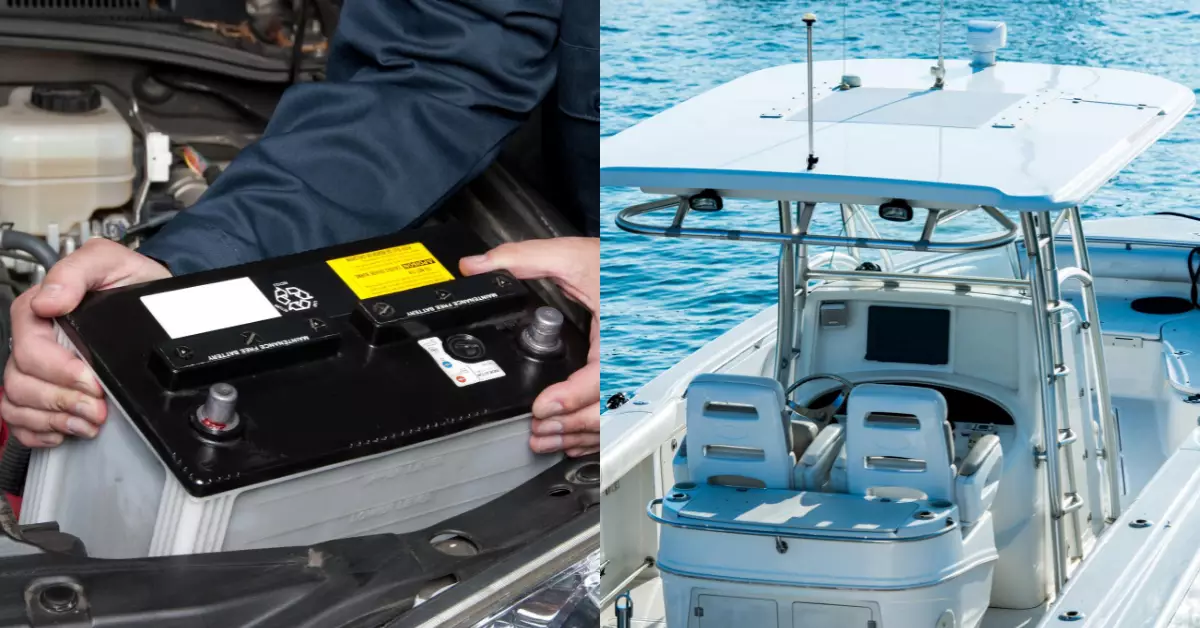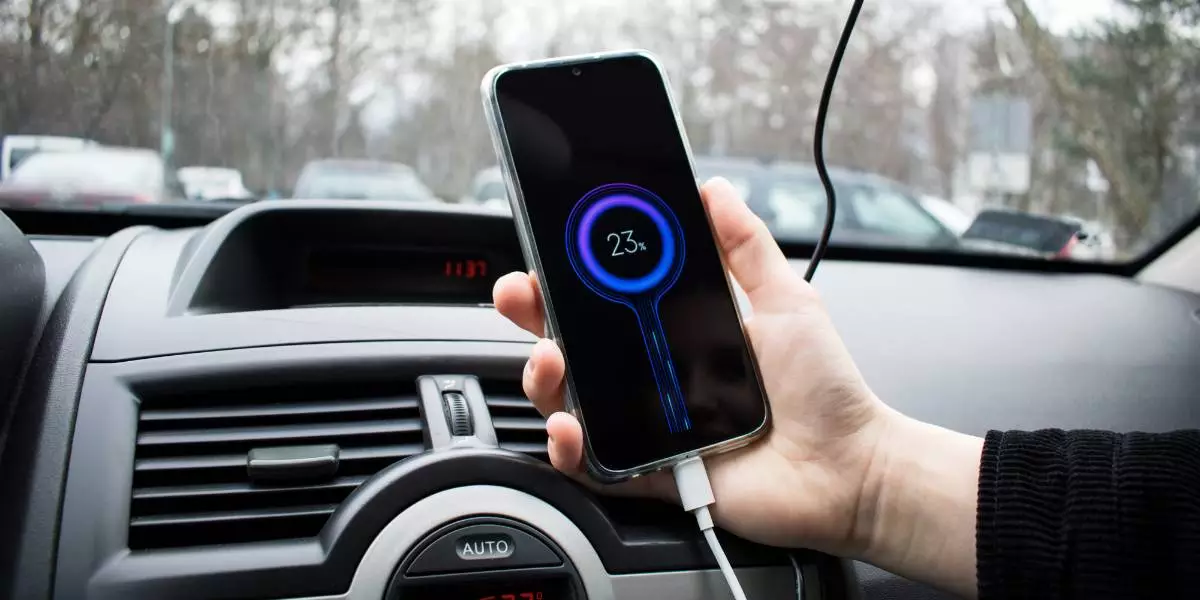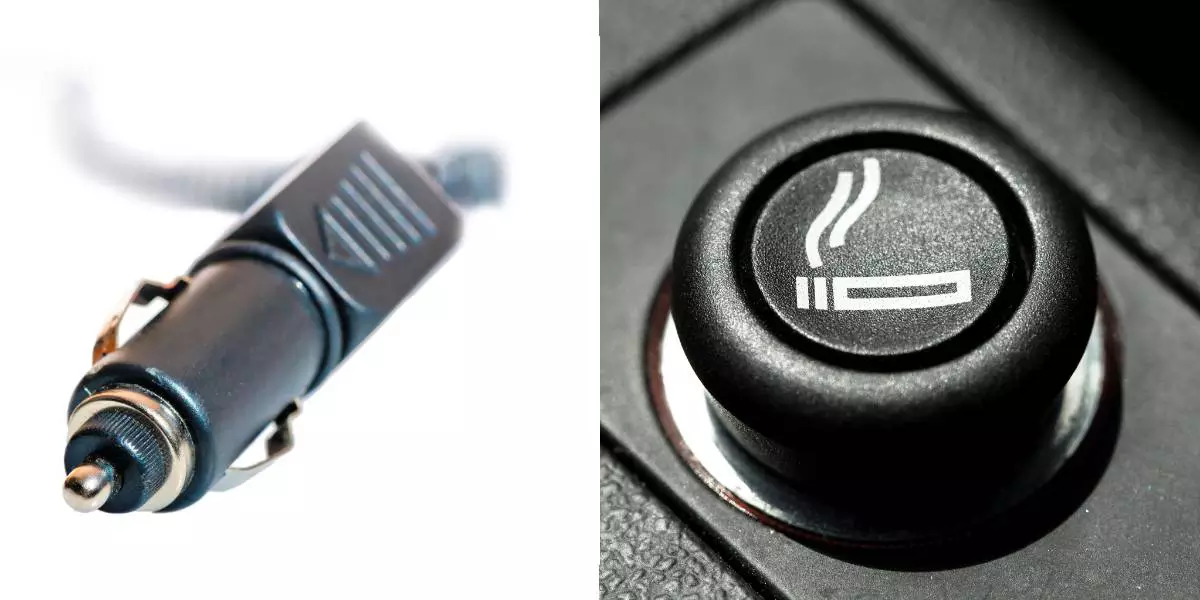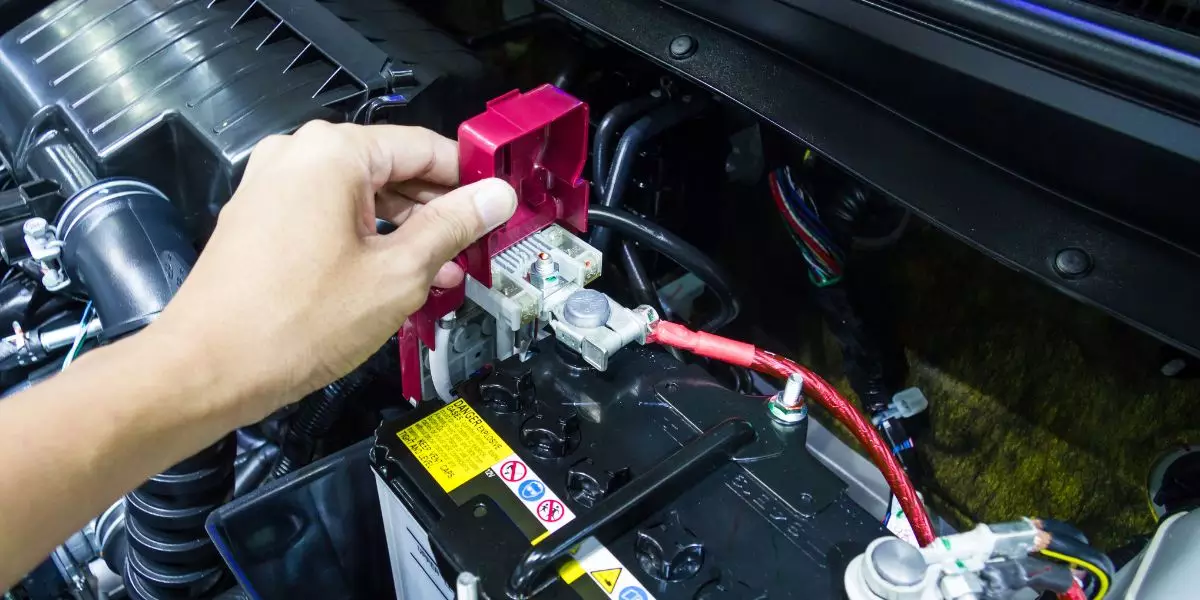If you’re wondering whether you can use a car battery in a boat, then the answer is much more complex than a simple yes or no. Your boat’s size and the kind of car battery are just two of the many determining factors.
You may decide what is best for your scenario by understanding the benefits and drawbacks of utilizing a car battery inside the boat after reading this article.
Can you Use a Car Battery in a Boat?
Yes, but it isn’t as straightforward as just connecting the batteries to the power supply. You must understand how to attach the batteries correctly to get your boat functioning and prevent issues like corrosion or leakage.
Additionally, experts advise utilizing a power source with at least double the amp-hours if you intend to utilize this kind of power for a prolonged duration of time (over 2-3 days).
Additional Considerations When Operating a Boat with a Car Battery
Prior to connecting any connections, check to make sure they are all spotless and free of corrosion. This will make it more likely that there won’t be any unintended sparks when they interact. Secondly, it’s crucial to connect your batteries to the boat using the proper size wires. A voltage drop & decreased power delivery to the boat may result from a cable that is too small.
The water level should be regularly checked if a vehicle battery is being used in a boat to prevent it from draining out. Car batteries are just not meant to be used in wet or salty conditions, and they will lose their power to retain a charge if they are completely dry.
The Difference Between Car and Marine Batteries
The battery that drives your boat is significantly different from the one that is in your vehicle. This is due to the need for a distinct type of battery to be built for the marine environment as well as the fact that marine batteries were basically made to serve a different purpose than vehicle batteries.
Function
Batteries merely store electricity; they do not create it. Once the machine runs, the battery in your car or boat needs to be recharged. The energy from the “charge” is then saved for subsequent use.
The battery’s sole function in cars has historically been to start the vehicle. They are called starter batteries for this reason. It essentially fuels the ignition system and starter motor. Because of this, a dead battery prevents your car from starting.
Car batteries are constructed from more thin lead plates than marine batteries because they must produce a far bigger initial current than marine batteries do in order to start your car.
Marine batteries, on the other hand, will provide that first burst as well as an ongoing supply of energy, while not discharging such a lot of energy at once. They provide the energy for the boat’s electrical features as well as being utilized to crank the engine.
Your battery powers the lighting, stereo, and pumps on your boat. This is why it is suggested to use a full, rechargeable lithium battery for boats that are outfitted with all the marine accessories, such as GPS, navigational lights, fish finders, as well as other gadgets.
In comparison to the conventional hybrid heavy cycle/starter packs that are typically used as maritime batteries, this is a superior option.
Composition
Both your car and your boat usually contain lead-acid batteries, which are just a collection of lead plates that have been submerged in diluted hydrochloric acid, the electrolyte. The battery stores the electric charge that is created when the object is submerged in sulfuric acid.
The variety of lead-acid batteries is determined by the size of the lead plates. Numerous thinner plates make up car batteries, which belong to the starter battery category. These same smaller plates as well as the thicker, heavier plates are typically used in what would be called deep cycle batteries. These are combined to create marine batteries.
Performance
Marine batteries are necessary for the greatest performance and also to keep your boat’s (outboard) motor and trolling motors running longer than usual. However, you can use a car battery for operating your boat if your only available power supply is solar energy.
The ideal battery for your boat will depend on the sort of engine it has. If you choose an automobile or marine battery, one thing is for sure: they are not convertible, so make sure you pick one designed exclusively for boats and other watercraft.
Durability
Compared to vehicle batteries, marine batteries are much more durable. In order to withstand the shocks and vibrations which come with traveling over lakes, oceans, and rivers, they are composed of larger lead plates and typically have a stronger overall structure.
Unlike vehicle batteries, which are made to handle a smoother kind of travel, they are designed to resist the rough nature of maritime transport without suffering damage.
Both a vehicle battery as well as a marine battery are still mostly lead acids batteries, despite significant differences in their design and application. They must be handled carefully when being recharged or replaced to avoid shock, burning, and other dangers.
What are the Risks Endured with Using a Car Battery in a Boat?
Batteries for boats are made to endure the harsh conditions of the sea, including seawater, humidity levels, and continuous vibration. Car batteries, however, were not created for this climate and may even be harmed by it.
The biggest danger is that a battery pack that has been corroded by salt water can blow up. This may result in severe injuries or can prove fatal in worst-case scenarios. Car batteries may also leak acid, which could harm the boat’s electrical system.
What is the Lifespan of a Car Battery in a Boat?
It is proven that boats and vehicles don’t mix. You might, however, occasionally find yourself in a situation where you have to utilize a car battery inside a boat. It’s crucial to understand how long a vehicle battery will last on a boat, whether you’re stuck on a remote island or simply want to charge up your boat’s equipment.
In a boat, a car battery would typically last for 30 to 60 minutes. Of course, the capacity of the battery as well as the power you’re utilizing will determine this. Your batteries will last longer if you’re only using a few tiny electronics as opposed to running a big appliance.
Use a voltage regulator in order to maximize the life of your battery. This will assist in power regulation and stop your battery from depleting too quickly. Using a car battery on a boat for an extended period of time is generally not a smart idea.
It’s advisable to use a marine battery if you need to operate your boat for a long time. Marine batteries survive longer than automobile batteries because they are made to resist the demands of the marine environment.
Do Boats Utilize Unique Batteries?
Boats technically have special batteries since there isn’t just one all-purpose battery for the system; rather, every battery in a boat serves a particular function. Typically, lighting, as well as other electrical equipment on boats, have their own unique batteries.
The majority of boats have alternators that recharge the batteries while an engine is operating. In most circumstances, you could swap out a marine battery for a vehicle battery, but that’s not recommended because each battery technology has different specifications and is made for a very specific purpose.
What Are The Best Types Of Car Batteries To Use In A Boat?
A deep cycle battery is the best kind of battery to use in a boat. Deep cycle batteries are made to be repeatedly discharged and recharged without suffering damage. This makes them perfect for usage aboard a boat where they will frequently be exposed to salt and water.
Make sure that the deep cycle battery you choose for your boat has a high ampere-hour rating. The battery’s capacity is indicated by this rating. The batteries will last longer between charges if the ampere-hour rating is higher.
What to Remember
- Before making the final choice, you must take the important factors into account.
- If the boat is tiny as well as the battery is completely charged, a car battery could be used in it.
- If a car battery is being used in a boat, it must be secured to prevent movement that could result in a short circuit.
- In cold weather, as with most batteries, a car battery won’t perform well.
- Your car battery would operate most effectively if it receives routine care and is constantly charged.
- If you absolutely need to use a car battery in your boat, make sure to always have a contingency plan, just in case your car battery dies when you are out there on the lake.
Conclusion
In conclusion, it is not advised to use a car battery inside a boat. It might function for a little while, but it is not intended for prolonged usage on the water and it will probably break down. Additionally, boat insurance coverage doesn’t often cover vehicle batteries, so if something bad happens, you can be stuck with a big repair fee.




